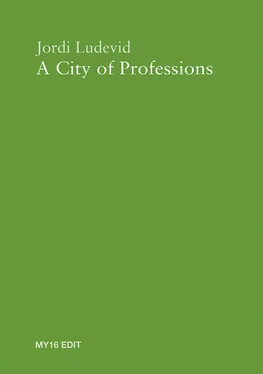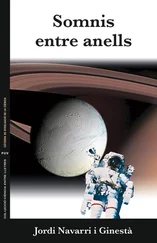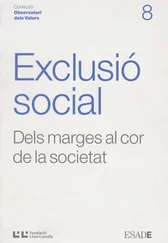Finally, recalling and disseminating the history of professional activity reveals the interest and usefulness of using it as a pedagogical and communicative resource.27 Recovering our history is the first step towards building our future, because, as we know, he who loses his origins loses his identity.
18Emilio Martínez Navarro, «Ética de la profesión: proyecto personal y compromiso de ciudadanía», Veritas, vol. 1, no. 14, 2006, pp. 121-139.
19In recent years, the Valencian professor of philosophy Adela Cortina has developed a broad reflection on the professions that has become a fundamental reference. See, for example, among other works, Adela Cortina and Jesús Conill, 10 palabras clave en ética de las profesiones, Verbo Divino, 2000, and Adela Cortina, ¿Para qué sirve realmente la ética? Paidós, 2013.
20Although they have important ties with the State and the economy, the professions traditionally belong to the third sector, in which the principle of community governs and prevails over the principle of legality (State) and the market (economy).
21See Guadalupe Ibarra Rosales, «Ética profesional y cívica para la formación universitaria», Boletín Redipe, vol. 4, no. 7, Universidad Nacional Autónoma de México, 15 January 2018. Available at: https://revista.redipe.org/index.php/1/article/view/372. See also, the UN Declaration of Human Rights, 1948.
22Augusto Hortal, Ética general de las profesiones, Bilbao: Desclée, 2002.
23According to D. Gracia, we can assign two principles to the public sphere (justice and non-maleficence) and two to the private sphere (beneficence and autonomy). From this assignment we would derive the priority of one over the other.
24See mainly Richard Sennett, The Craftsman (New Haven: Yale University Press, 2008) and The Corrosion of Character (New York: W. W. Norton & Company, 1996).
25Donald Schön, Educating the Reflective Practitioner (San Francisco: Josey-Bass Publishers, 1987).
26Ibid.
27See, for example, Jordi Ludevid, «Aula Profesional», 2018, at www.jordiludevid.com.

IV. The amphitheatre of La Sala
Areas of special natural and environmental interest, a route of tourist and
leisure interest, hiking and the Álvaro Siza Vieira environmental classroom.
IV. A Shared Identity
As opposed to the bureaucratic ethos or the legal minimum, the professional ethos, excellence.
Adela Cortina
A journey toward understanding the professional world would no doubt benefit from a second phase – absolutely necessary and fundamental – in which, by putting the puzzle pieces together, we arrive at a synthetic and functional definition that can offer some clarification. The process entails a compilation of the shared elements, consolidated historically and conceptually, that are considered essential for a profession to be truly recognised as such. These elements stem first and foremost from a common history, alluded to earlier, but they also come from the current contemporary public regulations in force today, which are also largely shared and thus form a substantive reality common to all professions, a common identity that exists today in a world of cities – in a context very different from that of the 19th and 20th centuries.
Now, while on the one hand the basic identity of the professions is common to all of them, on the other hand they also share a general context that is decisive. As a consequence, it would not make sense or be useful to recall the former without recognising the latter in the following chapters or stages of the journey: that is, the very difficult and singular, urban and digital, context that the professions are currently navigating.
We need to put together all the pieces of the puzzle. That requires an exercise in precision, compilation and structuring, in an area in which the predominant understanding is implicit and diffuse, memorialistic, oral and filled with assumptions. Given an explicit recognition of their fundamental elements, the professions could more easily recover their identity and their language and direct their future. This might also make it possible to offer greater internal and external clarity in terms of communication and more clarity of purpose. Ultimately, all this should be achieved by defining what is generic and common – valid for all professions, by identifying and listing their main functional and legal elements, the elements that structure and constitute the professional fact as a whole.
These elements, ordered according to our three key words, are as follows:
PROFESSIONALISM
1. The philo technè
The commitment to practical knowledge, the art of professionals, at present through the guarantee of continuing professional education for the members of professional associations, or continuing professional development according to the language of the European directive,28 which ensures up-to-date practical knowledge – in Hippocratic terms, the commitment to philo technè.
2. The philo anthropoiè
Commitment to people, civic ethics, human rights, at present through the guarantee of the deontological ethics upheld by professional associations, based on mandatory codes of ethics.29
3. The aretè
The orientation towards a goal of excellence, a job well done, values, virtues, craftsmanship.
PROFESSIONALS
4. The professional act
An expert and ethical act that is artistic, independent, optional – by its very nature different from an administrative act or an act of commerce. A personal act of empowerment, responsibility and creativity. A productive act in the best sense of the word.
PROFESSIONS
5. The mission
Or the internal good, the fundamental, decisive social purpose of a profession.
6. Self-regulation and institutionalisation
The self-regulation and delegation of public functions was one of the first causes behind the birth of the professions (Hippocrates, Henry VIII). It brings with it a respect for the State and expresses the public logic of professional institutions. It implies the empowerment and viability of these institutions.
Because these elements are constitutive in nature, the professional fact in any of its fields or specialisations could not forgo any of them without losing some of its importance, although it would not diminish the additional exigencies of each specific profession in each specific country. An academic degree30 is not conceptually sufficient today to accredit the existence of a profession.
It seems obvious that if the professions are to remain and survive in the 21st century, they must be able to offer a reasonable explanation for their existence, communicating their purpose in a clear and comprehensible way, by means of a coherent narrative which, directed both inward and outward, corresponds to the general pattern and the shared history, although adapted to each specific case. The factor of the mission or internal good plays a fundamental and decisive role in this communicative challenge, since it is the original raison d’être of the professions. That being the case, it is worth addressing the issue in greater detail.
28Mandatory for doctors and architects according to the European Directive on the Recognition of Professional Qualifications (2013).
29David Ansoleaga and Juan Luis Gómez, professors at La Salle, proposed an interesting scheme for professional ethics at the 4th State Congress of Social Educators. In their view, it should encompass four scenarios, each with a different principle at its heart: A) Relations with subjects (principles of respect for the person, centrality of the individual, honesty, confidentiality). B) Interprofessional relations (principles of independence, interdisciplinarity, professional loyalty). C) Institutional relations (principles of institutional coherence, institutional regulation, impartiality). D) Technical behaviour as such (principles of professional competence, lifelong learning, responsibility, democratic respect, respect for and promotion of the profession).
Читать дальше













